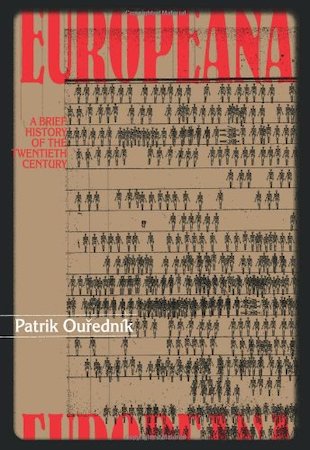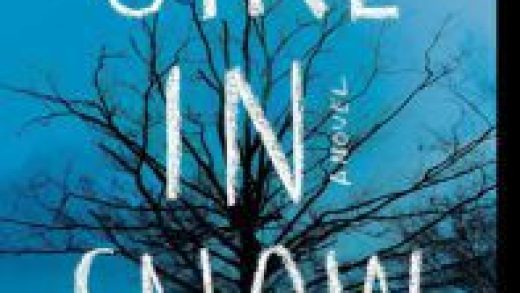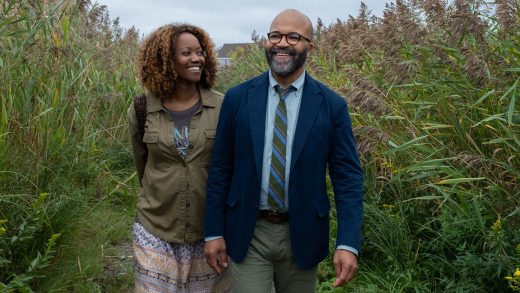A few years ago I started writing this novel called Be Here to Love Me at the End of the World, which is a love story set in a bad dream about America, and you can, if you’d like, guess how it ends. At the time, I kept thinking about the idea of the world ending, not as this dramatic thing with a lot of buildup, but just in the background, as we all went about our days. And the more I kept working on this, the more that, y’know, seemed pretty plausible.
There’s this song I hear my partner listen to almost every night while she scrolls TikTok: why you working so hard, it asks; the world is ending! yay! it’s the apocalypse! take a day off, it entreats us; it’s all meaningless!
It is all meaningless, the world is ending, we should all take a day off, because, like this song assumes, the world’s done, the end has come, why are you getting ready to go to work? Why not, I don’t know, read a book?
So here’s a list about books in which there is, or recently was, an apocalypse. And we’ll say for the purposes of this list that an apocalypse occurs any time our world ends. When the world ends, the angels come. When the world ends, the great bird descends. Everything is drowned in light, even your dreams.
These days, I’m concerned with considering just what, to you, is the world? And what would it do to you to watch it end? The world, to each of us, is a personal thing, and its loss is our own personal apocalypse. Your own tiny apocalypse at the end of the world of the day. Has any of this been on your mind lately? If so, then, dear reader, read on.

Eureopeana by Patrik Ouředník, translated by Gerald Turner
Eureopeana is about the world after World War I. The book opens by telling us the average height of the people in several nations participating in World War I and how far the bodies of those fallen troops would span laid head to toe, then it tells us about the invention of chemical warfare (gas attack!) and how everyone hoped they’d be home for Christmas. I’m not certain I’m doing this book justice here. It moves fluidly across the 20th century, showing us how it sprang from a war that broke the world, something so vast and terrible millions thought we’d never come out of it alive, only to see it happen again and again, and it talks about this the same way it talks about the invention of the bra, and of Barbie, and of the way movies showed sex. Everything happens at once, in an order dictated organically by the author. Worlds and lives and wars and hopes and dreams collapse over and over only to be born again and die again. I’ve never read anything like this.
One Hundred Apocalypses and Other Apocalypses by Lucy Corin
One Hundred Apocalypses and Other Apocalypses by Lucy Corin contains one hundred apocalypses and 3 stories that are, in their own way, about very personal apocalypses. t’s funny, it’s heartbreaking, it’s breathtaking, it’s only scary if you think you might survive the end of the world, I for one do not plan to, and anyway: one apocalypse involves zombies, one is a list of reviews for a movie called BABY ALIVE, one involves a truly beautiful dinner where everyone eats an angel food cake, one is in smaller font, one involves circuit city, one involves the library, one involves ghosts, every single one is about what we do when the world ends, and when you get through them all, your life will be different.
Something New Under the Sun by Alexandra Kleeman
Something New Under the Sun is a very different sort of apocalypse. For one thing, California is, eventually, on fire. For another, California is full of this artificial water called WAT-R that may or may not cause a very specific sort of dementia that may or may not be treated by the same people who created, marketed, and sold WAT-R, and all of these are their own apocalyptic processions, but the real world-ending here involves the main character: the author of a novel being adapted into a movie starring a reportedly troubled former-child actor, who was paid nothing for the movie rights but was instead offered one single slot as a Production Assistant, to be given to whoever he wants, in this case himself, leaving his wife (who once removed all the grass in their yard and part of the neighbors in a future state) and daughter (possessed of apocalyptic and occasionally prophetic visions) back east before they themselves hightail it to a bizarre extinction-morning-focused commune upstate of somewhere, and he loses himself in a wild mystery and reddit threads and if I tell you any more, I’m gonna spoil the whole thing. On the one hand, it’s an indictment of capitalism and our utter indifference to the world we burn in its name, and on the other, you watch a man’s world crumble around him, suddenly and without warning, switching perspectives around to watch it in ways that left me absolutely breathless.
Elect Mr Robinson for a Better World by Donald Antrim
In Elect Mr Robinson for a Better World, Donald Antrim tells the story of a coastal town’s apocalypse in one single unbroken paragraph lasting for, roughly, depending on your copy, 192 pages. The voters have defunded the schools, the mayor has been drawn and quartered by an angry mob and their hatchback sedans, Turtle Pond is stocked with claymores, Pete Robinson has painstakingly constructed a violently accurate 1:32 scale model of an inquisition dungeon in the basement of his house that he has been attempting to turn into a school, while his wife, at the Rotarian luncheon, channels the ancient coelacanth, bringing the town closer to the sea, and the sea closer to the town. Pete Robinson wants to open a new school. Pete Robinson wants to become mayor. And if we elect him, he has promised us a better tomorrow. This is another thing you can do, when the world falls apart, the oceans slowly rise, every lawn is a defensive perimeter and every defensive perimeter is a death trap, and the love of your life spends her days dreaming of the Cretaceous Sea.
The Factory by Hiroko Oyamada
Hiroko Oyamada’s The Factory follow three employees of a factory. You can read a bunch of good summaries on the internet: one shreds documents, one proofreads documents, one studies moss. Black birds begin to gather all around. Their days lose sense. Time becomes lost. Day by day, the world changes to accommodate their job, their productivity, while their lives are subsumed. How long can you do a job that makes no sense, whose demands and scope become wider and more-consuming by the hour? The minute? What happens to your dreams? And what happens to the rest of you once your dreams are eaten up by questions you could never articulate? When the birds come, does the end come too?
The Flame Alphabet by Ben Marcus
On the one hand, every single book Ben Marcus writes is an apocalypse. And on the other hand, every single book Ben Marcus writes is an apocalypse. In The Flame Alphabet, the language of children can kill any adult who hears it. Children, whose language is so different, so grasping and expansive, now poisons anyone who hears it. Language as an epidemic, parents faces shrinking, hardening, listless and mute. What do you do when your daughter can kill you like that? When you can’t speak? Are your own thoughts language?
It’s a wild book, and I’m assuming that part of being a parent gives you the drive to see things through as the narrator does, as I, personally, childless and 36, have no interest in fighting for a better world. I am beaten down by the world. This is a book for people who aren’t, or would like to no longer be, sort of.
The Age of Wire and String by Ben Marcus
The Age of Wire and String is a dictionary and instruction manual for a new world. The old one is gone! Language is twisted into new shapes to try to encompass feelings and sights and sounds we’ve never before borne witness to. This is the ordering of the fever of what comes after the world ends.
Notable American Women by Ben Marcus
Meanwhile my personal favorite, Notable American Women, takes place in reckless Ohio of the mind, wherein a young Ben Marcus is prepared for the world to come, once cleansed through stillness and silence, by the cult lead by Jane Dark. His father imprisoned, his dog his only companion, Ben’s world remains one he has to struggle to define as parts of him are lost and stripped away. What do we become before the apocalypse? What is it that really dies when the world ends?
The Ends of the World by Peter Brannen
Life is what dies when the world ends. Not to skip to the end, or anything. But that’s loosely what Peter Brannen’s The Ends of the World is about. Loosely, it is a (non-fictional) attempt at understanding Earth’s past mass extinctions.
I learned that the early trees bled acid into the bedrock to make soil. I learned that when the asteroid that killed the dinosaurs hit, it was going so fast that the atmosphere ripped open and the crater already formed long before it hit. I learned that the impact and the tear could have thrown dinosaurs all the way to the moon. I learned that it wasn’t just that a giant asteroid hit so much as India was basically a giant volcano covered in volcanoes and when the asteroid hit, India erupted and if it wasn’t the meteor, it was the volcano the size of India and I learned that what happened when it hit was that if you could see it hit, you were already did and if you couldn’t, then the sky would go white, and then you’d die. Death is about as personal as life, is one way of looking at all this. The earth’ll be fine. It’s everyone you’ve ever loved who’s fucked. Anyway it’s an incredible book.
The post 9 Books to Read at the End of the World appeared first on Electric Literature.









